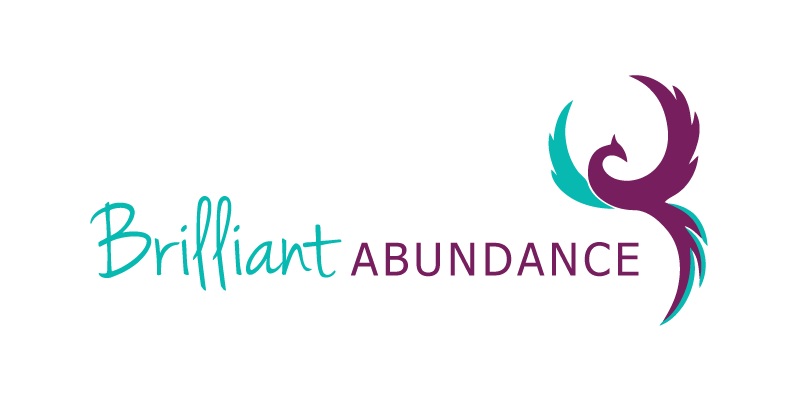Original Feature | Sublimation Coaching 2016
Trauma Can Happen to Any One
Trau·ma (noun): Trauma is a deeply distressing or
disturbing experience or physical harm.
As women there are many possible traumas that we have to be aware of, educated on, and on the look out for - it's not an easy task. Considering the alarming fact that 1 in 4 American women will experience some form of domestic violence during their lifetime; and 1 in every 6 American women will be the victim of an attempted or completed rape by the age of 18 years – I’ve taken the opportunity to deepen my knowledge base and take an inward look at how much this trauma type has affected many of the women in my family for generations and women in the community around me. With such alarming statistics, it is imperative for both single women and parents to start the conversation at home concerning forms of trauma and coping with trauma to heal and grow.
In addition to these daunting facts parents also have to worry about child predators, child abuse, and secondary trauma all while possibly coping with your own healing, whether you are the direct survivor or an indirect survivor of the violence or trauma. In my experience it was the secondary trauma that no one considered or realized should hold as much weight as trauma healing for the direct survivor.
Identifying as an indirect survivor of sexual violence and domestic violence, I understood too well the lasting effects of trauma that I did not directly endure. When I first identified these traumas I wasn't sure how to handle them. I wasn’t sure why I was crying when I learned what a secondary or indirect survivor was. I was shocked at how deeply hurt and emotional I was over learning this term and it was because I also received a wake up call that the trauma I needed to deal with, personally, was greater than I realized. But learning about and identifying as an indirect survivor to my mother, who survived childhood sexual assault allowed me to see how the trauma of my mothers’ drug addiction and abandonment had negatively manifested in my behavior and belief systems throughout my lifetime.
It is a great hope of mine that all women and children can be empowered through knowledge and the right tools to deal with trauma when it does occur. Abuse happens in all communities, no matter the social or economic status. The best ways to cope with your traumas are through methods of trauma informed care. I believe we can all walk in confidence and abundant self-love, after trauma.
Trauma Informed Care: How to cope and find your healing
After dealing with a traumatic event a survivor, who may have had prolonged exposure to the severe and traumatic events that they become the most affected, long term. Traumatic events could include a threat to self or another by physical harm; actual or threatened death, and/or serious injury. Before coping from trauma begins the survivor may have intense fear, attachment and horror issues, and concerns, or helplessness. Traumatic events include public (natural disasters, war, community violence), private and personal experiences (sexual assault, sexual abuse, domestic violence/interpersonal violence, witnessing domestic violence).
Co·ping (verb): To deal with responsibilities, difficulties,
or problems in a calm and successful manner.
It's hard enough to find time to incorporate self-care as a single working woman, to think you must take care of your family and still take care of yourself after you've experienced trauma can seem frightening, intimidating and down-right overwhelming. Here are some steps you can take to deal with traumas associated with domestic violence and sexual violence, while also building family support and trust.
Step 1: Own the Power of YOUR Voice #HERstory
Create a safe space within your family for you to open up and share your traumatic experience and/or talk about the shared traumatic experience and how it has affected you and/or your children. Sharing your traumatic experiences may feel difficult and overwhelming, but you have to counteract that thought immediately and push ahead in confidently finding your voice. There is power in sharing your story, I don't mean to say that you have to subject yourself to sharing every detail of your trauma, but opening up a dialogue with your family, allows your children to feel a part of your healing experience and feel importance in having a role in your support system.
Children worry just as adults do, allow them an opportunity to understand and ask questions about how you -- their mother is doing. If your child has experienced the trauma allow them to cope with it by asking your questions to get a better understanding. When children experience trauma they depend on their parents to “save” them and bring them back to safety.
Step 2: Create a regiment of self-care
Self-Care (verb): A method by which you make a commitment to
attend to every area of your life to manage stresses
(physical, emotional, psychological health, spiritual
needs, and relationships).
What is your favorite hobby? I'm not asking you to select any hobby that you sometimes do, I'm asking what your all time favorite thing to do! That one thing that puts the biggest and brightest smile on your face (remember this has to be positive)…have you got it? Write it down, put time on your calendar, and make sure you administer that thing that makes you smile at least 1-3 times a week [to start]. As you grow in confidence for self-care you will need to increase the amount of times you treat yourself to self-care to 3-7 times a week.
You should also consider family time self-care, where you and your family discuss and decide on an activity that you would all love to do that creates a new positive space and alternative opportunity for healing.
Step 3: Get Involved
Finding time to do things you love, outside of the home, are just as important as you finding ways to administer self-care on a regular basis. Being a mom and homemaker is quite the job and finding time for yourself (without your kid) is a necessary reward. What are some things you've been saying you've wanted to do, but haven't had the time? Have you wanted to check out a spin class? Go hiking, bike riding, and/or horseback riding? Have brunch with some girlfriends, Netflix binge, or get a spa massage? Is there an organization you've wanted to volunteer with because it's a cause near and dear to your heart? Well now is the time!
Getting involved with other things that you love will allow you to create different spaces of peace in your life, allowing more love to flow in and out of you because you've created a new space of peace and serenity. For some who have survived violence or trauma it's even important for them to personally get involved as an advocate against violence to help others have a greater chance of prevention; it could be right for you to volunteer with your local crisis intervention center.
How do I find confidence after trauma?
Con·fi·dence (noun): A state of mind, positive thinking, and practice;
full trust and belief in ones powers and abilities.
As you begin to incorporate the practices above into your life, you will begin to feel more self-confidence. Each of the above steps puts you into a space where you are more consistently administering love into yourself and your life practices on a regular basis. It is hard to think that these seemingly simple steps could jump-start your walk into abundant confidence and healing.
As you begin to examine the areas of trauma and pain in your life, determine the healing needed, and administer forgiveness to yourself and the person that caused or played a part in the pain and begin a regime of words of affirmation to your self. This process will help you change your way of thinking and plant seeds for growth in your new found self-confidence.
Incorporating Self-Love
It can be difficult to understand how trauma has manifested in your life, both negatively and positively; as you walk confidently into your self-discovery and creating a safe spaces of dialogue and support within your family structure, you will begin to feel more power in your voice. Because you have embarked upon a method that avoids re-victimization, appreciates different problem solving, allowed you to maximize your choices as a survivor, and have developed a deeper understanding of how you and your loved ones have been affected by trauma, you have already begun the process of incorporating self-love – the best kind of self-care!
You can continue to incorporate self-love into your life by harnessing your choice to administer self-care; make a commitment to yourself to take care of and attend to you first. The better you are taking care of yourself the better suited you’ll be for parenting with abundant love. As I’ve gone through the process of discovering the depths of my trauma and desiring to heal from the negativity of it, I know through personal experience that as you continue sharing your testimony it gets easier, your confidence grows, and you begin to understand why YOU were directly called to do what you do.
I’m an indirect survivor of sexual assault and I hope to help women open the door to their own healing through confident and abundant self-love! Remember that loving yourself first will always help you love others in your life better. May you all prosper with confident abundance in your walk to healing! #B_Abundant #BrilliantAbundance
Resources for Parents | Allowing Your Family
to Heal and Grow with Love
Sesame Street Toolkits for Parents | These toolkits are great for family learning and building on the big issues that small children have to deal with.
Self-Care Assessment | This assessment will assist you in determining the areas of your life that need more self-love and attentive care.
Helping Traumatized Children Learn | Literature that reports on school environments for children traumatized by family violence (policy agenda, included).
Adult Coloring | Proven to create a serene feeling like that of meditation.
Meditation | Playlist for personal meditation practices and healing relaxation.




